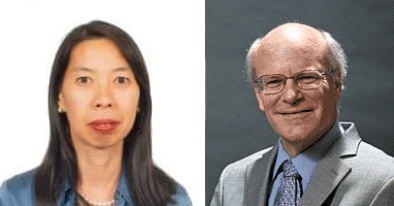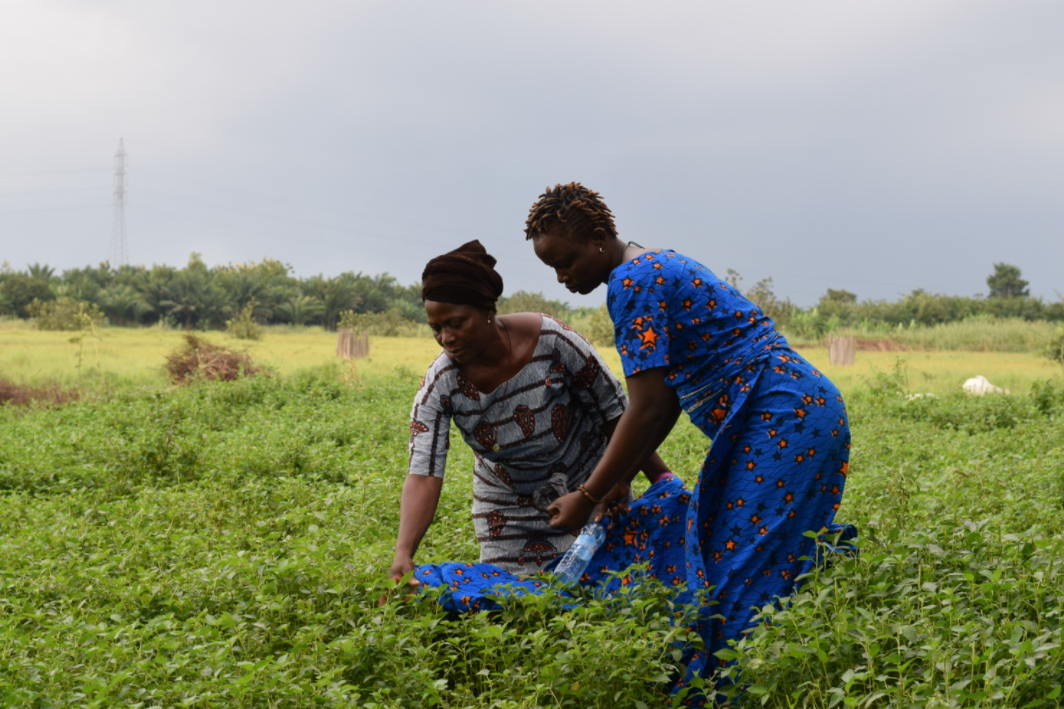The pandemic has demonstrated that communities are the first responders in any crisis and reiterated the need to put them front and center in development. Yet, development practitioners and funders continue to face many unanswered questions around the practice of CLD, its impact, and the process of human change that leads to this impact (or its lack thereof) in various contexts. In September 2020, the collaborative research team of The Movement for Community-led Development in partnership with Charles Darwin University, Australia began a rapid realist review of 56 community-led programs to unpack how community development, in particular, community leadership and facilitation, lead to improvements in equity and resilience in food security. InCLuDE (Impact of Community-led Development on Food Security) as the project was called, marked phase 2 of MCLD’s collaborative research project and was funded by a grant under the Implementer-led Design, Evidence, Analysis and Learning (IDEAL) Activity, supported by USAID.
On October 6, 2021, in a two-part, multilingual learning event keynoted by Ambassador Donald Steinberg (Expert Advisor on Localization to the Administrator, USAID), the research team shared its findings and recommendations for implementing organizations and funders. Susan Wong (Global Lead for Community Driven Development and Sustainability and Standards, World Bank) served as a respondent while powerful influencers from around the world issued A Call to Action.

Select item to view
Shifting Leadership and Ownership: Local actors must sit at the head of the table.
In his keynote address, Amb. Steinberg shared the thinking around the upcoming USAID-wide localization agenda and local capacity-building policy. The plans mark a shift in practice, wherein under the leadership of Administrator Power, USAID commits to a “consistent, purposeful and comprehensive strategy to provide more direct funding to local actors to change the power dynamics among grassroots organizations and their foreign partners, and to reinforce a local systems approach to development under the watchwords “nothing about them without them.””
Amb. Steinberg reiterated his long-standing belief in the need to transform international development toward a system that builds on local strengths and achieves locally-owned goals. “For 40 years I’ve carried with me the lesson that sustainable and resilient development means shifting leadership, ownership, decision making, and implementation to the local people and institutions who have the accountability, the connectedness and the credibility, to drive change in their own communities and countries.”
He outlined the Four Lines Effort that USAID has planned towards this end:
- Expand direct assistance to local governments, civil society organizations, and businesses, while at the same time ensuring accountability, high standards of monitoring and evaluation, and actively tackling the concerns and risk of diversion of funds.
- Change power dynamics among donors, international NGOs, development contractors, and local actors. One of the ways to achieve this includes co-creation to “insist that local actors have a seat at the table, and preferably at the head of the table throughout the life of our assistance programs.”
- Further embrace a local systems approach. This initiative will draw on local expertise and unique national contexts.
- Serve as a global public advocate and convener, thought leader, action leader, and learning institution for this approach.
Recognizing that the shift towards locally-led development will not be without challenges, Amb. Steinberg invited MCLD to continue to serve as a partner and a sounding board for USAID. “Around the world, you are known as the eyes, the ears, and the conscience of our global community. And just as you’re being so generous and forthcoming and sharing your knowledge, data, and experience here today as part of the collaborative research, we ask you to continue partnering with us as we refine our localization efforts,” he said.
Leadership and Facilitation in CLD: Key Findings
InCLuDE (Impact of Community-led Development on Food Security) sought to understand how, under what contexts and for whom, facilitation and leadership lead to improved resilience and equity outcomes in the context of food security. These findings from our rapid realist review carried out by a multi-organizational team, with support from an expert and reference group, show how CLD can work, not how it always works, and not how it works on average. The findings also provide evidence about the conditions in which CLD is more likely, and less likely, to work.
The following graphic depicts the 12 key findings from the study.
The research also offered guidance and recommendations for implementing organizations and funders, which are available in English and French. These included: rethinking program evaluations, redesigning requests for proposals, working with local governments, ensuring that programs do not place an unequal burden on women and marginalized groups, and ensuring adequate remuneration, training, and support for facilitators.
The research team highlighted how the purpose and design of program evaluations need to be negotiated between communities, implementing organizations, and funders. Programs need to be evaluated for the characteristics of CLD and equity outcomes, not just sectoral impacts. The Participatory CLD Assessment Tool and the Quality Appraisal Tool developed by MCLD offer a valuable starting point.
Similarly, request-for-proposals should define key terms, encourage the development of a Theory of Change, and delineation of roles and selection processes for facilitators and community leaders. They should include a preparatory grants phase to conduct a social and political context analysis. Most importantly, CLD needs a greater focus on equity. Community-led programs often rely on voluntary work from women, placing an unequal burden on them and other marginalized groups. We found that many marginalized groups face barriers to participation in CLD. Our review revealed that women do develop confidence in their voice when capacity development and strengthening activities are undertaken, but not if gender equity is seen as an imposed norm.
“CLD is both a means and an end”: Susan Wong
In addition to outlining the implications of the research findings, Susan Wong, Global Lead for Community-Driven Development, World Bank, highlighted the importance of investing in local leadership and community-led facilitation to strengthen social capital and social resilience. “Now more than ever we owe it to the broader international development community to understand better what are the drivers of transformative change and under what circumstances”
Susan highlighted the importance of unpacking how, why, and context-specific aspects of CLD, noting that “Realist review examines more carefully the processes that lead to outcomes.” She linked the value of the collaborative research team’s methodology and findings to a development world that is increasingly complex, where theories are often tested.
Susan reflected that all the 12 findings from the research were borne out by her own experience of CDD programming at the World Bank and particularly underscored the importance of the findings around government engagement and centering local leadership. “Investing in grassroots leadership and facilitation to strengthen social capital and social resilience is just as important for sustainable development as building a road or providing clean water,” she noted. She emphasized the important timing of this research, occurring as global challenges are increasing and the development sector needs to focus on sustainable and inclusive development. This is work that, as Susan aptly put it, “Requires a whole of society, multi-sectoral approach.”
“Partnership with local governments makes CLD sustainable”
Makueni County, Kenya showcases the importance of government engagement in making CLD work, a key finding from the research. Zipporah “Zippy” Wambua, Director of Public Participation and Citizen Engagement, Makueni County, Kenya, outlined how the County has moved towards fiscal decentralization as well as devolution of powers to communities to be able to manage their own development.
“Governments exist to create suitable environments,” argued Zippy, and so they must support local visions. This requires local governments to “unlearn” previous norms and historical approaches, and become public advocates for the CLD model. She urged other governments to follow the example of Makueni County which has signed an MoU with MCLD Kenya to establish a School for Community-led Development.
Quoting Gandhi’s vision of village republics, “An ideal village is a republic, independent of its neighbors, for its own vital wants,” Zippy encouraged participants to think of ways to make this a reality.
“Kenya is a big example and we are excited to see what can happen. I, therefore, urge this Movement to begin to dream about the role of the government […] that is the pathway towards sustainability,” she concluded.
“Let’s not be quiet about Community-Led Development”
Tim Prewitt, President and CEO, The Hunger Project, reiterated The Hunger Project’s commitment to shifting power to where it is most needed: local voices. Recognizing community-led development as a powerful concept, Tim echoed other speakers in noting, “Communities hold the power for transformative change.”
In light of the research findings, Tim drew on the need to improve design, implementation, and evaluation in food security. Additionally, he reiterated that equity, specifically women’s equity, must be a focus in program design. “We must ensure that community-led development activities are not adding to the burdens of rural women and infants.” In his Call to Action, Tim urged all organizations to examine the research findings and “not be quiet about Community-led development.”
“Collective action, building back better, truly starts with local communities”
Carrie Hessler-Radelet, President, Global Communities articulated the power of this research to guide future programming and expressed gratitude for the evidence that collective action and building back better begins with local communities.
Carrie noted that CLD “champions engagement.” Further, “Community-led development recognizes the power, promise, and potential that exists within every community, and is committed to ensuring that communities are in charge of their own future. It recognizes the inherent wisdom within communities.”
She urged more organizations to join MCLD and use the research results to strengthen their own work and share our messages far and wide. Carrie reiterated Ambassador Steinberg’s mantra, “nothing about them without them.”
“Nothing is as powerful as collaboration.”
Brian Hunter, Associate Vice President, Department of Hunger and Livelihoods, Save the Children, re-emphasized the important process of unlearning that organizations, agencies, and funders must undertake in order to achieve locally-led development. As a representative of the IDEAL consortia that funded the research and a member of the Movement, he highlighted the importance of collaboration “We are stronger together and the Movement is a remarkable example of this strength, of how people have shed logos and egos to work together for a cause that we all believe in. IDEAL and Save the Children are proud to have been a part of this collaborative journey.”
For further information on this project or to join the collaborative research team of the Movement, write to Gunjan Veda, Senior Advisor, Global Collaborative Research, MCLD (gunjan.veda@thp.org)
Research Team for InCLuDE:
MCLD: Gunjan Veda (MCLD), Elene Cloete (Outreach International), Holta Trandafili (World Vision), Matthew Cruse (Relief International), Diana Delgadillo (The Hunger Project), Molly Wright (Pact), and Amy Williams (formerly Global Communities)
CDU: Prof Gill Westhorp, Cara Donohue, Dr. Ruth Nicholls
The InCLuDE (Impact of Community-led Development on Food Security) research was conducted in partnership with Charles Darwin University, Australia. It unpacks how and in what contexts do community leadership and facilitation contribute to equity and resilience in food security, offering key insights for implementing organizations, funders, and governments.

This learning event has been made possible by a grant from The Implementer Led Design, Evidence, Analysis and Learning (IDEAL) Activity. The IDEAL Small Grants Program is made possible by the generous support and contribution of the American people through the United States Agency for International Development (USAID). The contents of the materials produced through the IDEAL Small Grants Program do not necessarily reflect the views of IDEAL, USAID, or the United States Government.


